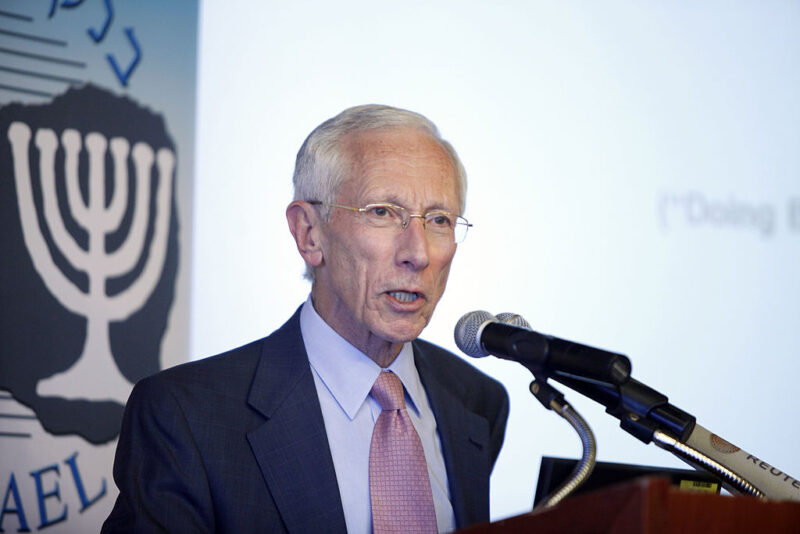Opinion
A WHOLE PEOPLE ENDEAVOR
The leaders Israel needs may not live there — yet
In Short
As Stanley Fischer taught us, Diaspora Jews have a wealth of experience that Israel should be drawing on at this time of need
A few years ago, I found myself on a flight sitting next to Stanley Fischer, the former governor of the Bank of Israel. I introduced myself and thanked him — quietly but sincerely — for his service to Israel. He smiled, humble as ever. It was a short exchange, but one that stayed with me.
There was always something that struck me about his decision to move to Israel. At the height of a remarkable global career — vice chairman of Citigroup, former International Monetary Fund deputy director and vice chairman of the U.S. Federal Reserve, an economist whose counsel shaped the financial policies of nations — he didn’t choose comfort or legacy. He chose responsibility. Born in Northern Rhodesia (now Zambia), Fischer left the United States, where he had settled and developed his illustrious career, to lead the Bank of Israel not out of necessity, but out of conviction.

Lior Mizrahi/Getty Images
Bank of Israel Governor Stanley Fischer speaks during his last press conference as a governor on June 25, 2013 in Jerusalem, Israel.
His death on Saturday night at 81 is a moment of mourning — but also of reflection. Because we are living in a time that demands more Stanley Fischers, more people willing to lead not because they have to, but because they believe they must.
Israel is in crisis — not only of security, but of spirit. And as we look to rebuild, we must expand our understanding of leadership. We can no longer afford to ask only who can lead — but where they must come from.
For too long, Israeli leadership has been defined narrowly — by geography, military service, political pedigree. But the challenges we face today are transnational, psychological and existential. The forces threatening Israel are not only firing rockets — they’re waging ideological warfare, hijacking algorithms and shaking global norms.
To meet this moment, leadership must be reframed.
It must include those outside of Israel — Jews of the Diaspora — who bring not only skills, but also distance, perspective and an unshakable yearning to contribute. Some may be drawn by pain, others by purpose, some by history, others by hope.
They are not immune to heartbreak. But they are not paralyzed by it.
They carry with them decades of experience — in diplomacy, finance, technology, education and moral leadership. They’ve fought battles not on the front lines, but in boardrooms, courtrooms and global institutions. And just as Fischer brought to Israel both expertise and vision, so too can a new wave of leaders emerge — if we have the courage to invite them in.
Israel was never meant to be insular. It was never meant to rely solely on the accident of birth. It was meant to be a collective endeavor — where people chose it, and in choosing, shaped it.
Stanley Fischer saw that clearly. He didn’t wait to be asked. He packed his bags, moved his life and stepped into history.
That is leadership.
As we imagine what Israel could — and must — look like 100 years from now, may we remember those who shaped it not because they had to, but because they chose to.
May Stanley Fischer rest in peace. And may his life and memory move more of us toward action.
Morielle Lotan is the CEO of Adir, a nonprofit advancing tech-powered innovation and education to combat antisemitism and hate.

 Add EJP on Google
Add EJP on Google









